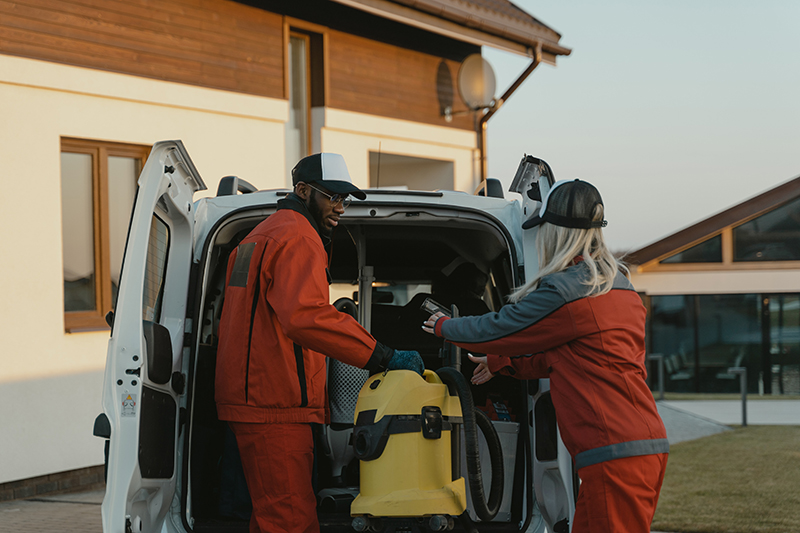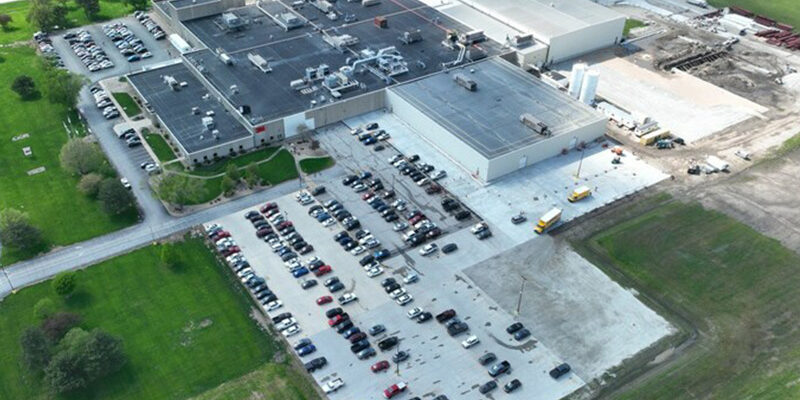Selecting the Ideal Work Van for Your Cleaning & Restoration Business

Starting a cleaning and restoration business involves countless decisions—including determining which tools are the right tools for the job.
Alongside the specific equipment you’ll need on projects in order to clean and restore, a vital but possibly overlooked tool is your company’s van. Indeed, as your company grows, you might need a fleet of vehicles. So, it’s important to approach purchasing a van mindfully, knowing that you might be applying that information to buy more in the future.
Assessing budget
Any thriving business needs to adhere to strict budgets, and your cleaning and restoration enterprise is no different. When selecting the right work van for your business, it’s important to take the necessary time to assess your budget and identify which vehicles are in your price range.
Start by reviewing your financial records over the last couple of years. Look at your profit, loss, and cash flow statements. Compare your numbers to industry data to make reasonable predictions about your expected profit. Don’t forget to consider other, more “incidental” expenses and investments you might have in the coming months and years. Compare this alongside your cash reserves to determine your ideal expenditure over a period of time that works best for you.
Determining needs
Not all vans are the same. Similarly, each business will have its own needs. Take the time to determine the needs of your business both now and in the foreseeable future. Then, create a list of qualities that you can refer to in your online research and take with you to showrooms to help you select a van that’s right for your business.
Some potential considerations include:
- The capacity required for your equipment and supplies, as this can establish whether you need a cargo van or can work with something smaller.
- The maximum payload weight the vehicle can carry, particularly if you have heavy industrial cleaning equipment.
- The overall size of the van. While you might find it easy to enter industrial parks with a large van, navigating suburbs or finding parking when working for residential customers could be more challenging.
- The ease of applying your company’s branding to the shape and color of the vehicle.
Used, new, or leased?
Another key consideration how you’ll acquire the van. Whether you’re planning to buy a used, new, or leased vehicle for your business, each option has a range of advantages and disadvantages. New vehicles typically come with warranties and customizable options, but they also tend to be more expensive. Used vehicles can have lower initial costs and attract lower insurance rates, but there could be reliability issues. Leasing a van, on the other hand, could result in lower monthly payments and greater flexibility. However, this method means you don’t own the asset outright.
In making this decision, business owners should look at how each acquisition method affects their specific needs, including their financial bottom line.
Establishing roadworthiness
When you’re purchasing a vehicle—particularly a used van—it is vital to fully examine its condition. During a test drive, be mindful of dashboard warning lights. For instance, a check engine light (CEL) can suggest anything from a loose gas cap to catastrophic engine trouble. An airbag warning light can suggest the airbags might not deploy correctly.
It’s also important to examine the overall condition of the engine, suspension, and braking system. If you don’t have sufficient expertise or experience inspecting vehicles, have a mechanic check the van before purchasing.
Fuel efficiency and environmental concerns
In recent years, the use of fuel in business vehicles has become increasingly important. A fuel-efficient van can reduce your company’s gas expenses. Additionally, fuel efficiency can have a reduce a van’s environmental impact. Not only does your business have an ethical duty to reduce the negative effects of emissions and reliance on fossil fuels, but consumers are also taking greater note of the green nature of businesses. Many are using this as a determining factor when deciding whether or not to work with a company.
To ensure that the vehicle you choose is fuel efficient:
- Check the Environmental Protection Agency (EPA) fuel economy rating for the vehicle. This should be on the window sticker of new vehicles, although many manufacturers have this information on their websites as well.
- Test drive the vehicle and calculate its miles to the gallon consumption. Compare this to averages for this type of vehicle to establish its relative efficiency.
- Consider purchasing an electric or hybrid van. There are more alternatively fueled vehicles coming onto the market, and you can even take advantage of tax credits to offset your expenses.
Safety considerations
Cleaning and restoration businesses have safety responsibilities to the public and to their employees. It’s important to consider the safety of the work van you plan to purchase.
Bear in mind the following safety components:
- Anti-lock braking systems (ABS) prevent a vehicle’s wheels from locking up during sudden braking, especially on slick surfaces. As a result, the driver can retain better control of the vehicle and reduce skidding, which can be particularly important when operating large vehicles like vans, which have a higher center of gravity.
- Having the ability to secure storage within the van keeps equipment and supplies contained and immovable during trips and prevents heavy or inflammable items from becoming loose in case of an accident.
- Blind-spot monitoring (BSM) systems utilize sensors to identify obstacles and hazards that the driver cannot see due to the size of the vehicle. These tools tend to provide auditory alerts that allow the driver to adjust their driving. There are also options that come with cameras and enable the driver to have full visibility around the van.
Finding the ideal van for your cleaning and restoration business requires careful consideration. You need to assess your budget and gain a good understanding of your needs. It’s also important to weigh the pros and cons of leasing, used, and new van purchases. In the case of used and leased vehicles, you’ll need to assess roadworthiness, too. Don’t forget that your duties to the planet, staff, and public mean you should consider the van’s environmental friendliness and safety features.












